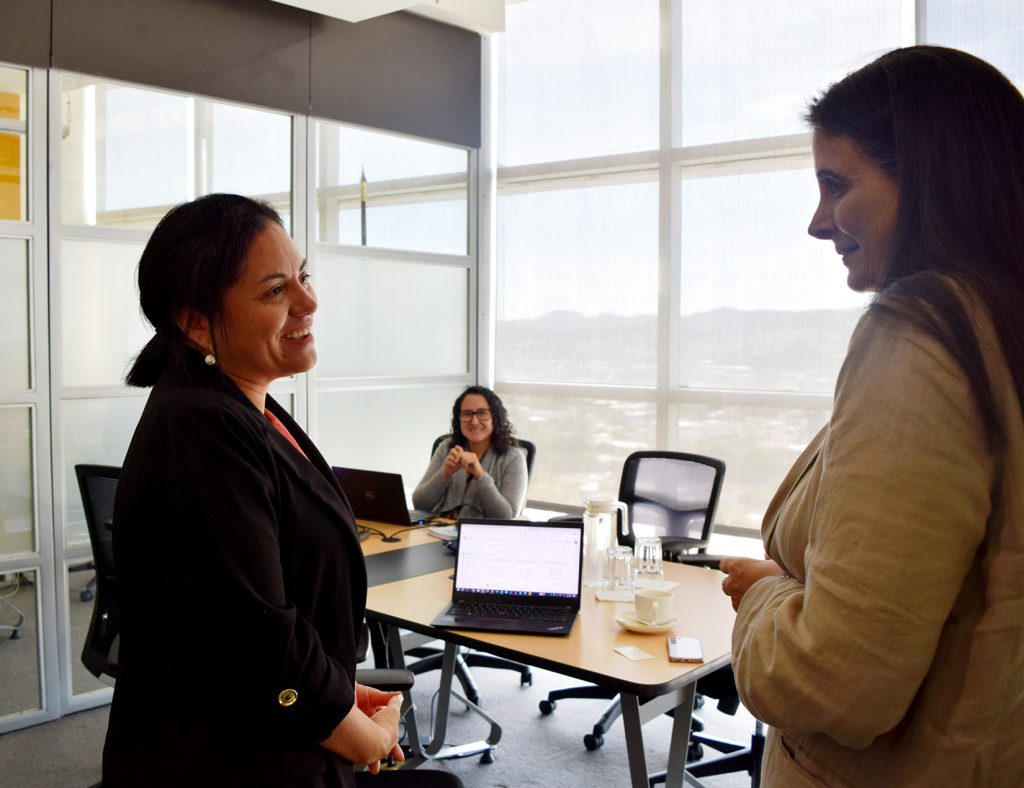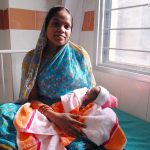A new partnership between Notre Dame’s Keough School of Global Affairs and UN Women-El Salvador will support research focused on understanding, mitigating, and preventing violence against women. Associate professor of global affairs Abby Córdova, a political scientist who researches gender-based violence, will serve as the Keough School’s leading researcher in this partnership.
“Joining with UN Women-El Salvador will allow us to engage in research and other activities that can help promote gender equality in the country and the Latin American region more broadly,” Córdova said. “Our cooperation will enable high-impact research that can make a real difference in the lives of women and girls.”
“Meaningful collaboration between academia and international organizations can have a profound impact in combating complex social problems,” said Xochitl Bendeck, director of the Women, Peace, and Security Program at UN Women-El Salvador. “Having access to evidence-based academic research enables UN Women and local civil society groups to design more effective security policies and programs that prioritize the needs of women.”
Together the Keough School and UN Women plan to study the impact of interventions to prevent gender-based violence, develop joint research programs, forge connections with local partners, national groups, and international actors; and organize joint conferences and symposia on subjects of mutual interest. The partnership has a duration of three years with the possibility of an extension.
Specific research areas will include the safety of women in public spaces; female migration; and post-war transitional justice with special focus on gender.
To increase women’s public safety, the collaborators will identify evidence-based campaigns that can impact public attitudes and behaviors toward violence and provide useful information to victims of sexual harassment and other forms of violence.
“We must try to identify the interventions that lead to citizen awareness of violence against women, particularly in the streets, in the media, or on public transportation,” Córdova said.
To address growing numbers of migrant women, the researchers will seek to understand the reasons women migrate and the challenges and risks they face, especially when they are returned to their countries of origin after being denied entry into countries like the United States. And finally, research focused on transitional justice will aim to strengthen existing programs for women who experienced violent conflict firsthand during El Salvador’s twelve-year civil war.
The collaboration lies at the heart of Eliminating Violence against Women, a new policy and practice lab housed at the Keough School’s Kellogg Institute for International Studies and led by Córdova.
A partnership between a US university and an international organization focused on women’s safety in Central America is unique, Córdova said, despite the fact that El Salvador, Honduras, and Guatemala have some of the highest levels of gender-based violence in the world. But when UN Women reached out to Córdova after reading a research paper she had written on addressing gender-based violence through women-led police stations, Córdova realized the partnership had potential.
“From the time of our initial conversation, it was clear that we had common goals,” she said.
Córdova and UN Women put together a plan of action, gained the support of the Keough School and the Kellogg Institute f, and in October, Córdova traveled to El Salvador for the group’s first working sessions.
“We now have a window of opportunity to put research into action,” Córdova said. “The knowledge we acquire from UN Women and civil society groups will enrich this research and root it in the specific challenges and opportunities of women in Central America.”
Since 1981, women’s rights activists have observed November 25 as an International Day for the Elimination of Violence against Women. Each year, levels of awareness and momentum have grown due to relentless work by grassroots activists, women’s human rights defenders, researchers, and survivor advocates. It is fitting that the partnership between the Keough School and UN Women has taken flight amid this commemoration, and Córdova said this new alliance gives her hope.
“By joining forces, both institutions are charting a path to create safer and more peaceful environments for women. Together we promise not only to investigate, but also to act, in the search for a more just and secure future for all women and to generate a lasting impact.”
Top photo: Abby Córdova (left) with staff members from UN Women-El Salvador.



